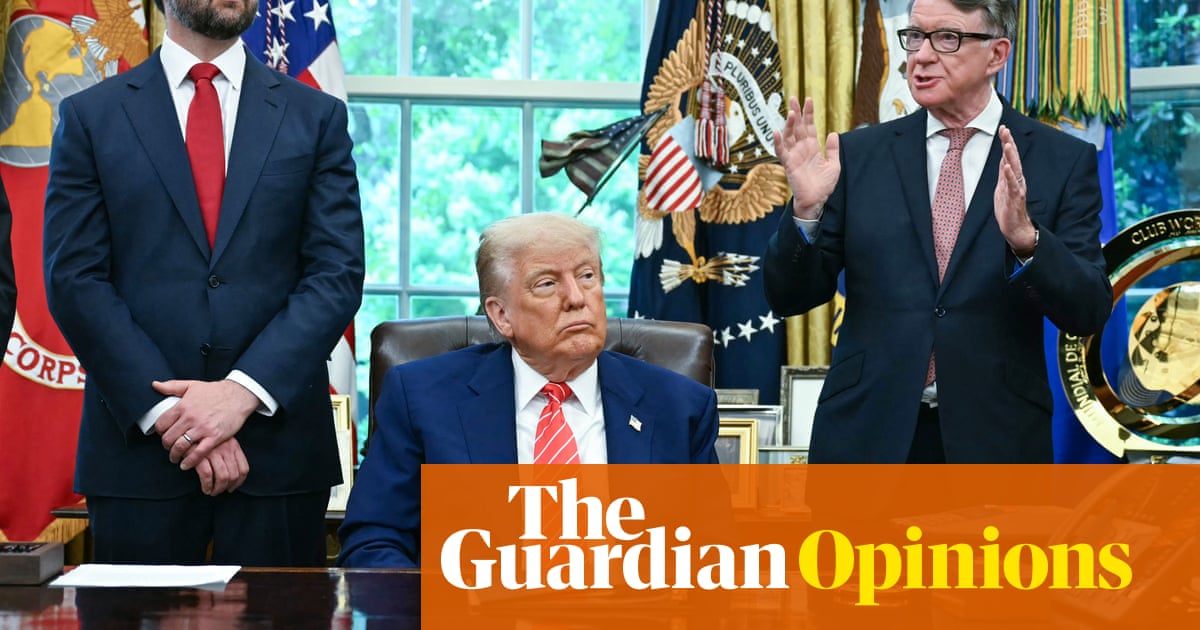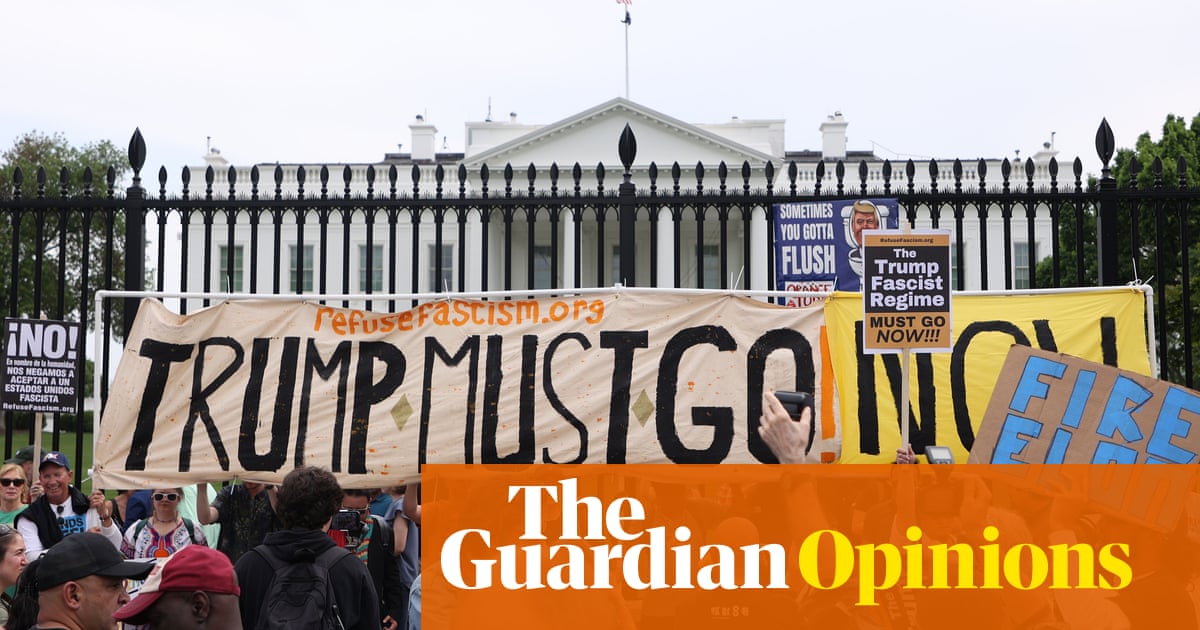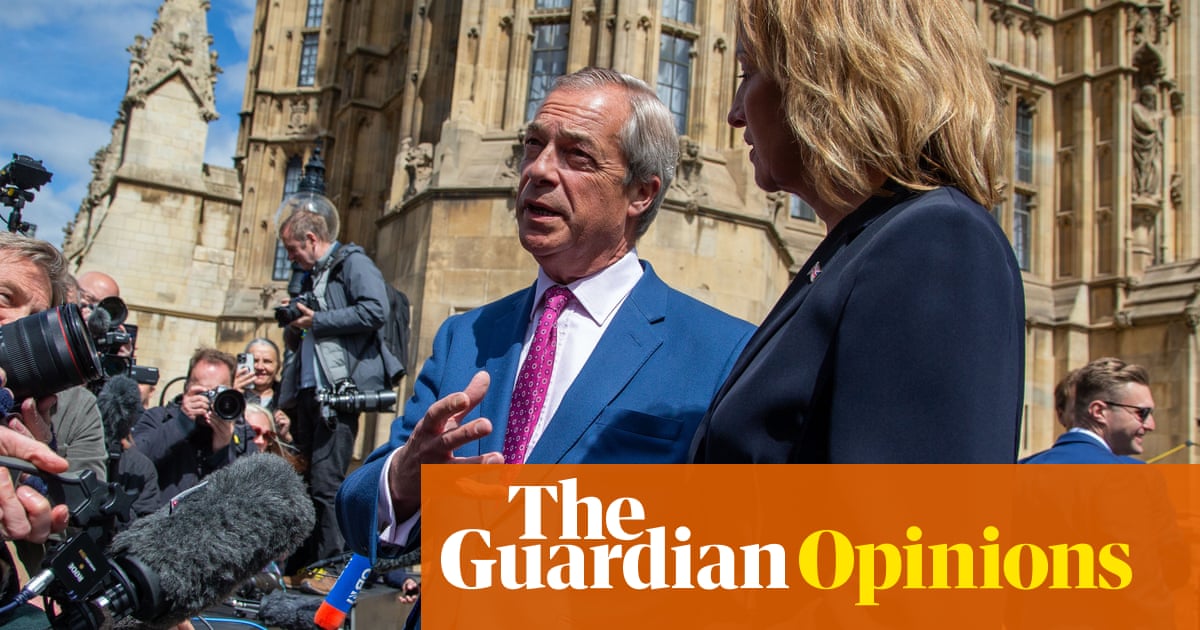How should Europe respond before Donald Trump’s policies destabilise the global economy? All countries will soon have to take a stand on the new US president’s tariff threats. While a shift away from free trade clearly carries risks, it also presents a valuable opportunity to reimagine our outdated international economic relations – if we can grasp what makes this moment unique.
In many ways, Trump’s economic agenda follows the Republican party playbook that dates back to Barry Goldwater’s 1964 presidential run, which launched the party’s enduring mission to dismantle Roosevelt’s New Deal. Trump claims the US was never better off than under William McKinley’s presidency (1897-1901), when the federal government, before income tax existed, was pared down to a minimum.
The free-market fundamentalist Milton Friedman made a similar argument in his time, viewing the introduction of income tax in 1913 and its rise (with a top marginal tax rate that averaged 78% from 1930 to 1980) as a major source of economic decline. Trump is unlikely to achieve it in the next four years, but he is now aiming to completely abolish income taxation.
In trade policy, too, while the rhetoric has evolved, Trump’s mercantilist approach echoes Ronald Reagan’s policies of the 1980s. Reagan imposed a 45% tariff on Japanese motorbikes, 100% tariffs on Japanese computers, televisions and power tools, and 15% tariffs on Canadian lumber. To be sure, China has replaced Japan as the main target of US wrath; Trump also favours tariffs over the import quotas that Reagan frequently used (including against European countries). But the underlying philosophy remains the same, predicated on a worldview in which the aggressive pursuit of self and national interest is the true driver of progress.
Yet these similarities shouldn’t obscure the fundamental difference between Trumpism and its historical predecessors. As a result of four decades of financial integration and the growing importance of global public goods (chief among them, the climate), the US’s choices now have far greater ripple effects worldwide. “America first”, often labelled as isolationist, is actually the first free-market nationalist agenda that is truly global in its ambitions and economic impacts.
US tax laws affect the rest of the world like never before. Nearly half of US-listed company shares are owned by non-residents, up from 5% in the 1980s. So when the US cuts corporate tax rates, it’s not just American shareholders who cash in (through higher dividends or stock prices), but the top 1% worldwide.
Take France as an example: while these holdings were negligible 40 years ago, wealthy French households now own (through various financial intermediaries) almost as much in US stocks (about €800bn) as they do in CAC 40 (French stock market) shares (€1tn). Washington DC is now in effect exporting its inequality policies to the rest of the globe.
This direct impact is amplified by an even more powerful indirect effect: the race to the bottom with business taxes. During his first term, Trump slashed corporate tax from 35% to 21%; he’s now looking to bring it down to 15%. The massive subsidies introduced by Joe Biden’s 2022 Inflation Reduction Act – the new face of international tax competition – are set to continue, though with different beneficiaries: tech and defence companies instead of green industries. Meanwhile, the 2021 international agreement on a global minimum corporate tax is on life support, under constant Republican attack. This race to the bottom is poised to accelerate dramatically, potentially ending with the complete elimination of taxes on capital and income.
The picture is similar in climate policy. The fracking boom has sent US oil production through the roof over the past 15 years. The US became the world’s top oil producer in 2018 and a net exporter of petroleum in 2020 – a feat unachieved since the late 1940s, when the rest of the world’s infrastructure was in ruins. But this isn’t enough for Trump, who has made relentless extraction a key goal of his new mandate.
Like the reliance on beggar-thy-neigbour tax incentives, this strategy can pay off handsomely in the short to medium term for the country implementing it. But it is a negative-sum game for the planet as a whole. The capital sucked up by tax cuts comes at the expense of the rest of the world, fuelling inequality. Meanwhile, increased oil drilling accelerates climate breakdown, hitting the most vulnerable populations in the poorest countries hardest. Eventually, these forms of dumping can only trigger violent backlash.
The US isn’t, of course, the first country to pursue negative-sum international competition, and that’s precisely what makes it so dangerous. Trump is returning at a time when tax competition is happening at already rock-bottom rates, in societies weakened by rising inequality and plutocratic capture, at a make-or-break moment for climate action and in democracies more vulnerable than ever. Are we witnessing the prelude to a crisis that could eclipse even the nationalist violence and armed conflicts of the early 20th century – this time with truly global consequences?
There’s an urgent need to rethink international economic relations – calmly but radically. The most promising approach is a policy that would neutralise and reverse the forces of tax competition, inequality and climate chaos. Under the new rules of the global economic game, importing countries would apply their laws beyond their borders to tax large, undertaxed companies abroad and their billionaire owners.
after newsletter promotion
To illustrate how this would work in practice, consider Tesla. Imagine that it pays no corporate or carbon tax in the US but makes 5% of its sales in Britain. The UK Treasury would calculate what Tesla should have paid in the US if British tax law applied there and collect 5% of that amount. Similarly, Britain would step in to tax Elon Musk proportionally to the amount of his wealth that originates from the UK (which, since his fortune is mainly in Tesla stock, can be estimated to be about 5%).
This approach is inherently extraterritorial, since countries would partly impose their tax standards on foreign actors in exchange for market access. But it’s time to think of extraterritoriality in a positive light: as the most effective way to impose the minimal standards needed to curb inequality and keep our planet livable.
Unlike traditional tariffs, this form of protectionism, which we might call “interposition protectionism”, would create a virtuous cycle. As countries with significant consumer markets like the UK would collect the taxes unpaid in other countries, those countries would have no further reason to offer tax breaks. The race to the bottom would be replaced by a race to the top.
Within Europe, it would not even be necessary for all governments to agree. A single country on its own could make access to its market conditional on meeting minimum tax standards, as already happens in other areas such as food safety. Foreign multinationals, and the billionaires who own them, shouldn’t be granted access to the British market if they pay zero tax.
The system I propose offers far more than a defence against Trumpism. It presents a viable alternative to the failing free-trade paradigm of the post-1980 era – a framework that voters worldwide have increasingly rejected. It is our best chance of ushering in a new era of international cooperation – the only promising path forward for our planet – and of stopping the destructive forces of nationalism, before they sweep everything away.
-
Gabriel Zucman is professor of economics at the Paris School of Economics and École normale supérieure – PSL, and founding director of the EU Tax Observatory

.png) 3 months ago
46
3 months ago
46













































